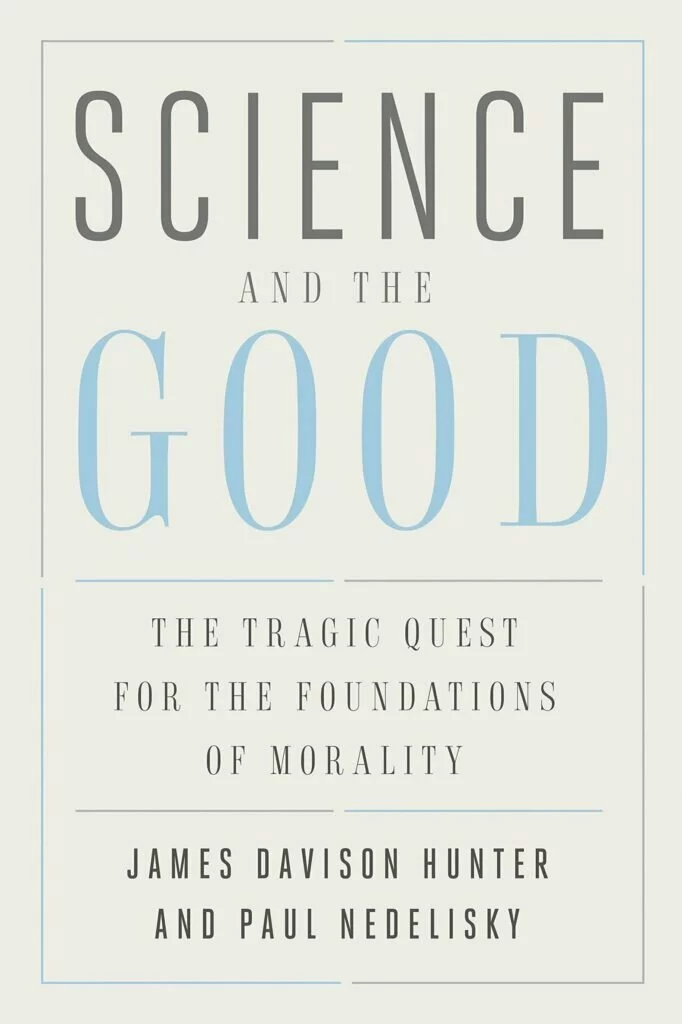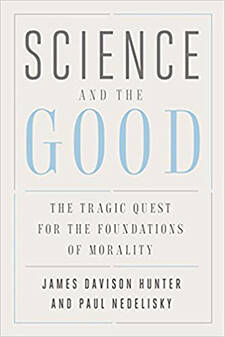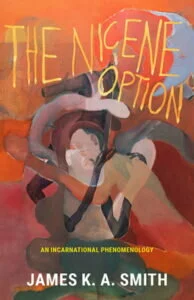“If there is no God, Murder Isn’t Wrong”
So says the religious conservative radio talk show host and author Dennis Prager in a PragerU video viewed by 4.5 million people.https://bit.ly/35umHFr I rebutted Prager in a studio debate hosted by Dave Rubin for his Rubin Report show,https://bit.ly/3ppsvIh in which I made the case that rejecting “Divine Command Theory” (God commands it therefore it is moral, or God forbids it therefore it is immoral) as the basis of morality does not leave only one position, namely moral relativism, as Prager claims: “In a secular world, there can only be opinions about morality. Every atheist philosopher I have read or debated on this subject has acknowledged that if there is no God, there is no objective morality.”
Much of my career has been devoted to overcoming this either-or choice between religious moral objectivity and secular moral relativism. The former requires belief in a deity, which most professional philosophers and scientists agree is not supported by reason or science, and the latter is unsatisfactory for anyone who cares about the origin and nature of moral values (it simply isn’t true that “without God anything goes”). But even if there was uncontestable evidence of God’s existence, that still doesn’t produce objective moral values because we can always ask, “Is what is morally right or wrong commanded by God because it is inherently right or wrong,Much of my career has been devoted to overcoming this either-or choice between religious moral objectivity and secular moral relativism. or is it morally right or wrong only because it is commanded by God?”This is a rewording of Plato’s “Euthyphro’s dilemma,” in which he asked “whether the pious or holy is beloved by the gods because it is holy, or holy because it is beloved of the gods?” If murder is wrong because God said it is wrong, what if He said it was right? Would that make murder acceptable? Of course not! If God commanded murder wrong for good reasons, what are those reasons and why can’t we base our proscription against murder on those reasons alone and skip the divine command stage altogether? In other words, if murder is really wrong in the moral universe, then it doesn’t matter what God thinks, or whether or not there is a god—it’s still wrong.
For millennia, philosophers have sought to build reason-based moral systems, a number of which have survived the test of time, such as Aristotle’s virtue ethics, Immanuel Kant’s deontological categorical imperative, Hume’s sentiment ethics, Jeremy Bentham’s and John Stuart Mill’s utilitarianism, and John Rawls’s veil of ignorance ethics. Now scientists are jumping into the fray, and that is the subject of James Davison Hunter and Paul Nedelisky’s book Science and the Good, whose subtitle suggests the authors conclusion about this program: The Tragic Quest for the Foundations of Morality. Tragic in the sense that it can’t be done. Let’s consider their arguments.
First, the authors ask “whether science can do for morality what it does for chemistry and physics—resolve differences with empirical evidence” (p. 11). And: “Can science demonstrate what morality is and how we should live?” (p. 11). By “science” the authors mean “what is empirically observable” because “broader rational inquiry has not given us a consensus on moral questions, as twenty-five hundred years of philosophical debates amply demonstrate” (p. 99). A science of morality operates at three levels, they continue: (1) “demonstrate with empirical confidence what, in fact, is good and bad, right and wrong, or how we should live”; (2) “give evidence for or against some moral claim or theory”; (3) “scientifically based descriptions of, say, the origins of morality, or the specific way our capacity for moral judgment is physically embodied in our neural architecture, or whether human beings tend to behave in ways we consider moral” (pp. 99–100).
Thus far, Hunter and Nedelisky claim, scientists have failed to achieve Levels 1 and 2, and most of what constitutes the Level 3 scientific study of morality is understanding the evolutionary origins of the moral sense as a social primate species through kin selection and reciprocal altruism, or the neurophysiology of moral emotions through hormones like oxytocin and neurotransmitters like dopamine, or the social circumstances in which people behave morally or immorally like in Stanley Milgram’s shock experiments. These are all important developments in the scientific understanding of why we are moral, but they don’t actually tell us what is right or wrong, good or evil. Science might tell us why we feel guilty about hurting other people or breaking our promises, for example, but it can’t tell us when it is acceptable to hurt another person (in self-defense or war, say), or when it’s actually moral to break a promise (not to lie, for example, when Nazis at your door ask if you’re hiding Jews and you are).Where does the assumption that humans desire a life of well-being and flourishing come from? And the aforementioned philosophy-based moral systems do not always resolve these issues either, as in conflicts between Kant’s categorical imperative that would always and everywhere forbid lying, and Bentham’s utilitarianism that would prescribe lying to murderous Nazis.
Hunter and Nedelisky present a comprehensive and fair description and analysis of the various Level 3 moral sciences, such as the evolutionary ethics of primatologist Frans de Waal, the group selection theory of evolutionary biologist David Sloan Wilson, the neuroscience of moral decision making by Joshua Greene, the social psychological Moral Foundations Theory of Jonathan Haidt, and the well-being moral systems of Sam Harris, Steven Pinker, and me, none of which, the authors conclude, reach Levels 1 or 2 moral science. The grounding of a moral system in “the well-being of conscious creatures,”Sam Harris, The Moral Landscape: How Science Can Determine Human Values (New York: Free Press, 2010). or “principles that maximize the flourishing of humans,”Steven Pinker, Enlightenment Now: The Case for Reason, Science, Humanism, and Progress (New York: Viking, 2018). or “the survival and flourishing of sentient beings”Michael Shermer, The Moral Arc (New York: Henry Holt, 2015). is a built-in assumption before any scientific inquiry begins. Addressing my own program, Hunter and Nedelisky note, “Shermer’s argument must assume at the beginning the values he claims can be demonstrated scientifically” (p. 155). They add that Harris does the same thing in his analogy between physical health and well-being, when he writes “Science cannot tell us why, scientifically, we should value health. But once we admit that health is the proper concern of medicine, we can then study and promote it through science. . . . I think our concern for well-being is even less in need for justification than our concern for health is” (p. 156).
Fair enough. But where does the assumption that humans desire a life of well-being and flourishing come from? It is not an arbitrary element just tossed into the moral equation of determining right and wrong. It is discoverable from empirical science and astute observation that most people most of the time in most circumstances prefer to survive and flourish than to suffer and die, in the same way that they prefer satiation to starvation, health to disease, freedom from pain to insufferable agony, freedom from cruel and unusual punishment to fairness and justice, and freedom from chains to chattel slavery. How do we know that people have these preferences? By observing them and asking them—you know, empirical social science and history. In laboratories and historically, most people everywhere and everywhen usually engage in behaviors that satiate their hunger, avoid disease, pursue pleasure, and escape bondage. That exceptions come to mind—the masochistic pursuit of pain as a form of pleasure, for example, or hunger strikes in protest of injustice—only reinforces the point that under normal conditions such preferences are universal and part of human nature.
I believe this satisfies Hunter and Nedelisky’s Level 1 moral science as empirically based. Here is how I put it in a later book (published after Science and the Good):
It is my hypothesis that in the same way that Galileo and Newton discovered physical laws and principles about the natural world that really are out there, so too have social scientists discovered moral laws and principles about human nature and society that really do exist. Just as it was inevitable that the astronomer Johannes Kepler would discover that planets have elliptical orbits—given that he was making accurate astronomical measurements, and given that planets really do travel in elliptical orbits, he could hardly have discovered anything else—scientists studying political, economic, social, and moral subjects will discover certain things that are true in these fields of inquiry. For example, that democracies are better than autocracies, that market economies are superior to command economies, that torture and the death penalty do not curb crime, that burning women as witches is a fallacious idea, that women are not too weak and emotional to run companies or countries, and, most poignantly here, that blacks do not like being enslaved and that the Jews do not want to be exterminated.Michael Shermer, Giving the Devil His Due: Reflections of a Scientific Humanist (Cambridge: Cambridge University Press, 2020).
How do we know these things? Given a free and fair choice between democracy and autocracy, for example, people always choose the former. A century of failed command economies led nearly every nation to switch to market economies because that is what people want. Why? Because they flourish under them—compare East and West Germany between 1945 and 1990, or North and South Korea today. That regimes must build walls and concentration camps to maintain their autocratic controls is empirical evidence for an unmistakable human preference.
These, and many more in this vein (e.g., when women were given the chance to run companies and countries they excelled), are examples from history and current events that serve as natural experiments that allow us to employ the comparative method of empirical science to draw provisional conclusions.
In response to this argument for the discoverability of moral values (and thus the overturning of the Is/Ought naturalistic fallacy), the philosopher Robert Pennock told me:
The way the argument works is to say if you want to get a moral conclusion you need at least one moral premise. It’s not that there aren’t factual premises—and this I took to be your main point, that science gives us some moral premises that make a difference—and that’s exactly right. But the naturalistic fallacy doesn’t say you can’t have factual premises. It says you can’t have only factual premises. You have to have something that has an ought, such that together with the is you can get an ought in the conclusion. And I would say that the way you make your argument is actually bringing in oughts into your premises and so you’re not actually denying the naturalistic fallacy. Really, you’re accepting it but building in some ought premises from the beginning. And that’s the right way to do it!On my Science Salon podcast, https://bit.ly/3ly1Oit
Hunter and Nedelisky outline the Is/Ought problem in a long endnote (pp. 221–22) that makes a similar point, and I concede that they and Robert Pennock may be right, namely, that any case for right or wrong must begin with some built in moral premise. In my theory’s case it is the survival and flourishing of sentient beings, by which I mean the evolved instinct to live and to have adequate sustenance, safety, shelter, bonding, and social relations for physical and mental health. Any organism subject to natural selection will by necessity have this drive to survive and flourish and thus it is part of our nature. If that’s a moral premise, so be it, but at least it is a premise grounded in empirical science that anyone can observe for themselves.
Pinker thinks morals might be something discoverable like abstract Platonic truths:
On this analogy, we are born with a rudimentary concept of number, but as soon as we build on it with formal mathematical reasoning, the nature of mathematical reality forces us to discover some truths and not others. (No one who understands the concept of two, the concept of four and the concept of addition can come to any conclusion but that 2 + 2 = 4.) Perhaps we are born with a rudimentary moral sense, and as soon as we build on it with moral reasoning, the nature of moral reality forces us to some conclusions but not others.Steven Pinker, “The Moral Instinct.” The New York Times Magazine, January 13, 2008.
How do you get from Is to Ought here? In addition to our nature’s desire to survive and flourish, we are also social creatures living among other sentient beings who also want to survive and flourish. Reasoning moral agents would eventually conclude that both should cooperate toward mutual benefit rather than compete to either a zero-sum outcome in which one gains and the other loses, or both lose in a defection cascade. Pinker draws out the implications for moral realism:
If I appeal to you to do anything that affects me—to get off my foot, or tell me the time or not run me over with your car—then I can’t do it in a way that privileges my interests over yours (say, retaining my right to run you over with my car) if I want you to take me seriously. Unless I am Galactic Overlord, I have to state my case in a way that would force me to treat you in kind. I can’t act as if my interests are special just because I’m me and you’re not, any more than I can persuade you that the spot I am standing on is a special place in the universe just because I happen to be standing on it.Pinker, “The Moral Instinct.”
From this one can derive what Pinker calls the principle of interchangeable perspectivesSteven Pinker, The Better Angels of Our Nature (New York: Viking, 2011). that is embodied in the Golden Rule discovered by many religions over thousands of years, and rediscovered in different forms in Spinoza’s Viewpoint of Eternity, Hobbes’s, Rousseau’s and Locke’s Social Contract, Kant’s Categorical Imperative, and Rawls’s Veil of Ignorance.Whether or not I have overcome their objections, I still think the program worthy of pursuit, for much work lies ahead. This principle emerges time and again because it is, in a sense, a foundation of morality built into human moral nature, and thus should be part of an empirical moral science.
Science and the Good is the best analysis of the problem for science in determining moral values and anyone who wishes to make the attempt should read this thoughtful work carefully. Whether or not I have overcome their objections, I still think the program worthy of pursuit, for much work lies ahead. It is one thing to argue that a moral program grounded in human flourishing is a starting point based by empirical science. It is quite another to get into the weeds of moral issues to work out how science can determine—or at least inform—moral decisions. In the abortion issue, for example, whose survival and flourishing should we consider primary, the fetus’s or the mother’s? I argue for the mother’s, for historical and cultural reasons, but I’m not sure science—embryology, medicine, psychology, economics—can settle a dispute between pro-life and pro-choice advocates. In the end we may be left with conflicting rights claims within one moral system (the rights of the fetus vs. the rights of the mother), and/or conflicting moral systems (Kant vs. Mill) that are unresolvable by science. Still, science is the best tool ever devised for understanding causality, so I see no harm—and much potential benefit—in trying.
####
Read the reply to this review by James Davison Hunter and Paul Nedelisky.









Comments
Be the first one to make a comment!